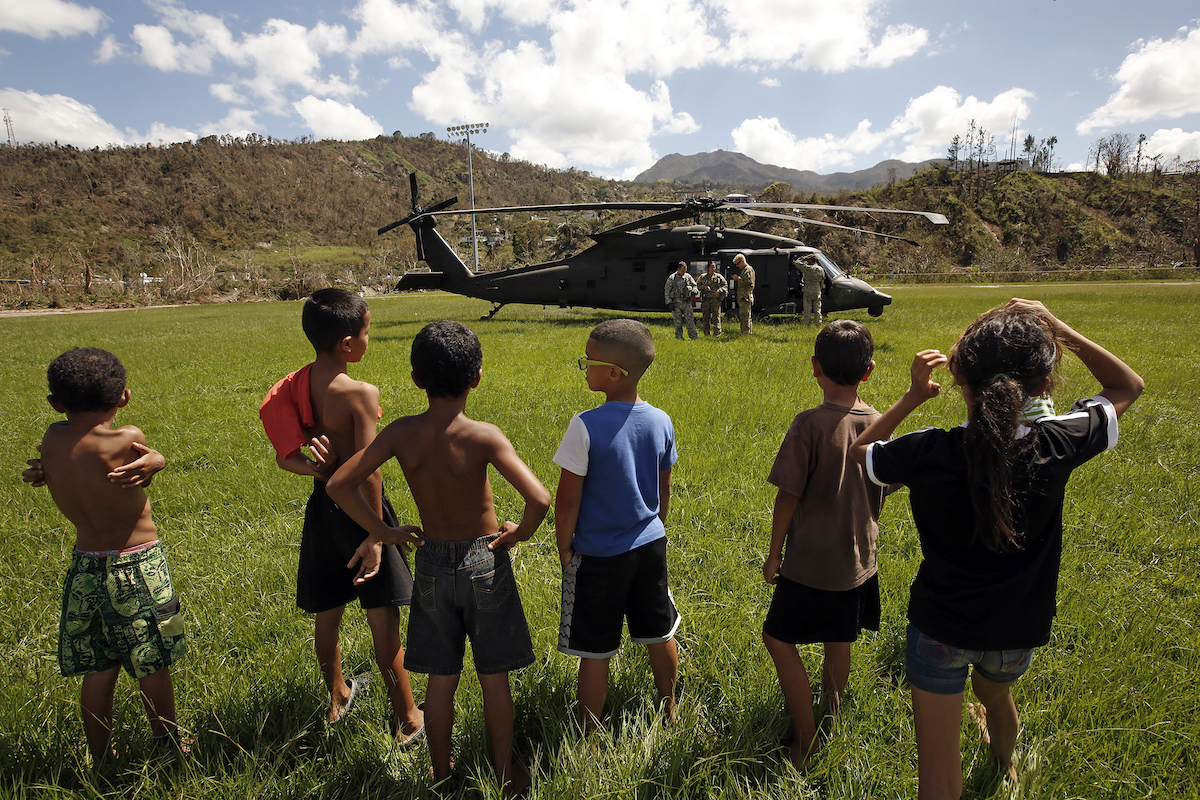
Children are all the same, whether you birthed them yourself or adopted them as a part of your family. They need to be nurtured, loved and cared for just the same. Biological children are a part of you, but children who you take guardianship for are special; they can always take pride in the fact that you chose to have them as your child.
And yet in a bloody custody battle with Spain, the United States of America has proven to be a truly despicable caretaker for a place full of life that is rightfully deserving of care like any other.
History time! Puerto Rico was received as a territory to the U.S. in the Treaty of Paris, following the Spanish-American War. It was adopted along with the Philippine and, Guam. Puerto Rican citizens were awarded full citizenship in 1917, and it was 35 years later that Puerto Rico became a commonwealth of the U.S.
The true status of Puerto Rico has been up for debate for decades. First of all, the declaration of commonwealth status is a little loose. In 1952, Congress approved the “Constitution of the Commonwealth of Puerto Rico,” meaning its people were gifted with local autonomy and yet still federal control of the island would remain the same.
The commonwealth essentially is a status that grants Puerto Rico a specific relationship beyond that of any state. Those include exemption from most federal laws, the ability to sign certain treaties with foreign countries, and obtaining federal funding with no strings attached, all the while their citizens remain full citizens, and the U.S. abides by certain Puerto Rican policies in a “mutual consent” clause they have.
While all this may sound great to some, and many of the benefits Puerto Rico receives are privileges given to no other state, the status of Puerto Rico renders all of this pointless. The fact of the matter is as a commonwealth, they have no seat at the table of American government. Every state, even Alaska and Hawaii, all have something that this commonwealth does not.
The topic has been divisive among Puerto Ricans. Some wish for full independence, others want full statehood, some are even fine with remaining a commonwealth. The overarching point is that eventually, Puerto Rico will have to change, and in the last referendum 61 percent of the people approved statehood as a better option.
Many people do not have a clear understanding of how Puerto Rico operates alongside with the 50 states in American government, and the simple answer is it doesn’t. The people are no different than those who live in any of the 50 states, and Americans can travel to the island without the use of a passport, yet natives are seen in a different light.
Despite the political disparity, many do not see a problem with how things are, and the people in Puerto Rico who stand with it staying a commonwealth agree with this statement. However, here lies an issue with that.
Hurricane Harvey was the first of many category 4 hurricanes to hit during the early fall of 2017, and the damage didn’t stop there. Texas took major hits from Harvey. Dozens of buildings and homes were damaged, boats were flipped, power lines were broken and trees were torn out of the ground. Many tornadoes spawned in the aftermath.
People rushed to aid the people in need in Texas, donations were made and proceeds were sent, political action was put in motion.
Then there was Hurricane Irma that crushed Florida. Yet another incident where the forces of nature wreaked havoc on many of the people left in its wake. Homes were destroyed, families were left stranded, businesses closed for good, nothing left but a path of destruction.
The Florida Department of Children and Families has spent millions of dollars to support relief. The Disaster Supplemental Nutrition Assistance Program has sent out cards to families left stranded after losing everything, vouchers that are worth hundreds of thousands of dollars to be used at most grocery stores. FEMA is also hiring Florida residents to assist in recovery after Irma’s devastation.
The United States’ mainline took major hits during the calamity of this record-breaking hurricane season, and the bad news is that the wreckage is not over yet. Puerto Rico has been completely devastated by Hurricane Irma and now Maria, and the situation in treating this has been none the likes of Texas and Florida. Thousands of people are homeless, and over a million more are living without power.
The hardest part to swallow is the fact that while we sit here in our luxury and leisure, American people suffer there without power or a home or clean water, and it’s becoming the norm because of how long the situation has endured.
If you’ve ever watched the Despacito music video by Luis Fonsi, the video was shot in Puerto Rico. If you were to see what that place looks like now you wouldn’t recognize it.
Government aid has been trickling in ever since the hurricane season started, but no sufficient progress has been made to calm the overwhelming demand for help. Puerto Rico’s geographical location proves difficult, compared to Texas and Florida, and muddied and ruined roads make transport all the more difficult. Many say the devastation from over a month ago still seems as if it happened yesterday, and it’s because nothing has really changed.
Trump has made actions towards relief, but it still proves a struggle against the ever-growing demand for help. FEMA has also made significant action, but it’s still not enough.
There are 3.4 million Americans and 35 percent of houses without drinking water, and even though FEMA as delivered a staggering 6.2 million gallons of water for many thirsty people, hospitals and dialysis centers, that only counts for a pitiful 9 percent of drinking water needs for the entire territory. That’s not even including the need for cooking and hygiene. It’s forced people to drink contaminated water.


